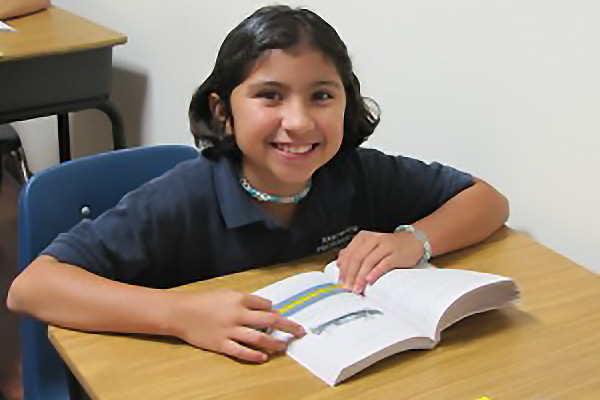
Basic teaching, tutoring or even academic remediation is usually not enough for our students to achieve success within the school arena. This is because they are often lacking in "foundation skills" or cognitive skills.
Cognitive skills are any mental skills (the thinking process) used in the course of acquiring knowledge; these skills include reasoning, perception, and intuition. The following skills are integrated into our program:
Processing speed - The efficiency in which the brain processes the data it receives. Faster processing speed leads to more efficient thinking and learning.
Auditory Processing - This is the specific skill of processing sounds. We break this skill down into three measurable areas that greatly impact reading and spelling. These are analyzing, segmenting and blending sounds.
Visual Processing - This is the ability to receive and manipulate visual information. Puzzles are a great illustration in the function of visual processing. Visualization (creating mental images) also greatly affects reading comprehension and long term memory.
Memory - Memory skills fall into two broad categories: long term storage and recall memory; and short-term working memory. Long term memory becomes the "library" of facts upon which we build our concepts and accumulate knowledge. Working memory handles the dynamic job of holding data during the learning experience, while we are receiving multiple bits of new information. We then combine and process that information to create new concepts and understanding.
Logic and Reasoning - These skills are necessary to create those new and likely relationships between information we take in as we learn. We use these skills to compare new data with recalled facts stored in long term memory. Problem solving and planning are also greatly impacted by logic and reasoning skills.
Task Analysis, Sequencing and Part/Whole Relationships - These skills dictate how we approach a problem, decide on potential solutions, implement the solution, and evaluate the effectiveness of the solution to the original problem.
Critical Thinking and Conflict Resolution Skills - These skills dictate how we respond to adversity and praise, when to fight and when to walk away; and knowing the appropriate manner of responding to stressful situations.
Attention Skills - The final broad area we work on in training is attention. Attention breaks down into:
- Sustained Attention is the ability to stay focused and on task
- Divided Attention is the ability to focus on several important points simultaneously
- Selected Attention skills enable a student to quickly sort and discard distractions or irrelevant incoming information, and to remain focused on the important information or instruction.
It is not difficult to see how these Cognitive Skills apply to learning and that if any of these areas are lacking in strength, a child's ability to learn is greatly compromised. Of course, this does not just apply to the classroom, but to every area of the child's life.








